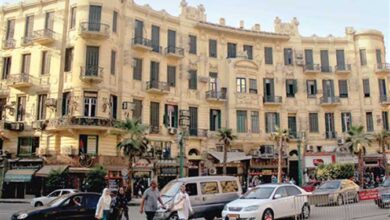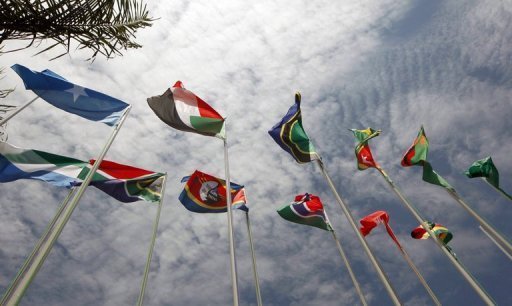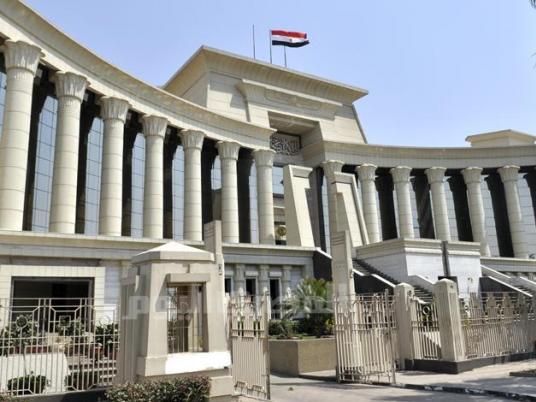Tahani al-Gebali, vice president of the Supreme Constitutional Court, described the day members of the Islamist current prevented the judges from entering the Supreme Constitutional Court as a black one in the history of the judiciary and the Egyptian state.
In an interview with Al-Masry Al-Youm, Gebaly said the Egyptian state is the target of a conspiracy and faces a genuine threat from the Muslim Brotherhood because the president is unable to act independently of the group.
Al-Masry Al-Youm: What do you think of the constitutional declaration issued by the president Saturday?
Tahani al-Gebali: The president says he replaced an old constitutional declaration with a new one, but the truth is they are the same. And in all cases, the president does not have the right to issue constitutional declarations.
I would like to explain that the fact that the new constitutional declaration immunizes the results of the canceled one means, from a constitutional point of view, that all of the articles of the canceled one are in effect. And this includes the immunization of the Constituent Assembly and the Shura Council, even though it was the effects of the constitutional declaration that caused the current crisis, particularly after the constitutional judiciary and the State Council were prevented from reviewing any pertinent cases.
Al-Masry: What do you think of the Muslim Brotherhood’s protest at the Supreme Constitutional Court?
Gebali: That was the darkest day in the history of the Egyptian state and the state of law, because besieging the court, which is responsible for monitoring the constitutionality of laws and whose rulings are binding for all state institutions, means that the state is collapsing. If we see the link between that and what is happening in judicial circles, we will find that the state is in fact collapsing.
Al-Masry: Do you think there is a conspiracy against the judiciary?
Gebali: The entire Egyptian state is subject to a conspiracy and real danger from the Muslim Brotherhood because the president belongs to it, and he has not abandoned it. He still rules through it, taking into account its goals. … The constitutional declaration issued recently dealt a blow to the judiciary and contained provisions that prevent the judiciary from exercising its powers.
The constitutional declaration does not target the constitutional court alone, but all judges. The constitutional declaration also undermines the state of law and allows the dismissal of judges without going through the legal venues stipulated in the law on judicial authority.
The whole affair is an unprecedented assault on the state of law and the judiciary. To claim that there is a supreme interest in that is not true, because no supreme interest undermines the state of law — the alternative to law is chaos.
Al-Masry: What do you think of the canceled constitutional declaration?
Gebali: As a judge, I have the right to state my opinion on all public affairs. If I give my opinion on something, I will decline to rule on its constitutionality if it were reviewed by court.
I actually declined to examine two cases that were filed against the People’s Assembly and the law on political isolation because I’d given my opinion on them before. I do not believe the president has the power to issue constitutional declarations because constitutional powers come from two sources. The first is when there is a de facto extra-constitutional power, such as the Supreme Council of the Armed Forces, which can issue constitutional declarations until an institution-based state is established during a certain transition period.
The second source is a constitution that has been put to a public referendum. But for the president to issue constitutional declarations as he wishes is a violation of the law.
We should not stop to examine the details of the declaration for he does not, in the first place, have the power to issue it. The president is exploiting the rights of martyrs and revolution injured to get his way, while their issues can be resolved through laws and administrative decrees.
Al-Masry: Did you have a prior intention to dissolve the Constituent Assembly and the Shura Council?
Gebali: This is not true. The court issues its rulings blindfolded after hearing all the arguments. We do not issue our rulings in advance.
Al-Masry: Did the SCAF ask you to issue a ruling ordering the dissolution of the People’s Assembly ?
Gebali: This talk is insulting to the court. Some currents mislead public opinion to achieve their private interests. In that ruling, the court only reiterated the same reasons it mentioned in the rulings on the People’s Assembly issued in 1986 and 1990. The Supreme Constitutional Court does not submit to anyone.
Al-Masry: What do you think of the final draft of the constitution?
Gebali: It has many perilous provisions that require review, including the lack of sufficient guarantees for rights and freedoms. New constitutions tend to have guarantees, such as incorporating articles to establish a monitoring mechanism to detect discrimination and punish those who discriminate.
Also, the constitution concentrates power in the hands of the president and grants him the right to make agreements. This undermines sovereignty. This is a catastrophe.
Al-Masry: Do you think the Brotherhood is trying to hegemonize the judiciary?
Gebali: Rather, the judiciary is being exploited, to be more precise, such as through attempts to jeopardize the independence of the judiciary and provisions that state that judges are immune to dismissal.
Translated from Al-Masry Al-Youm by Dina Zafer



